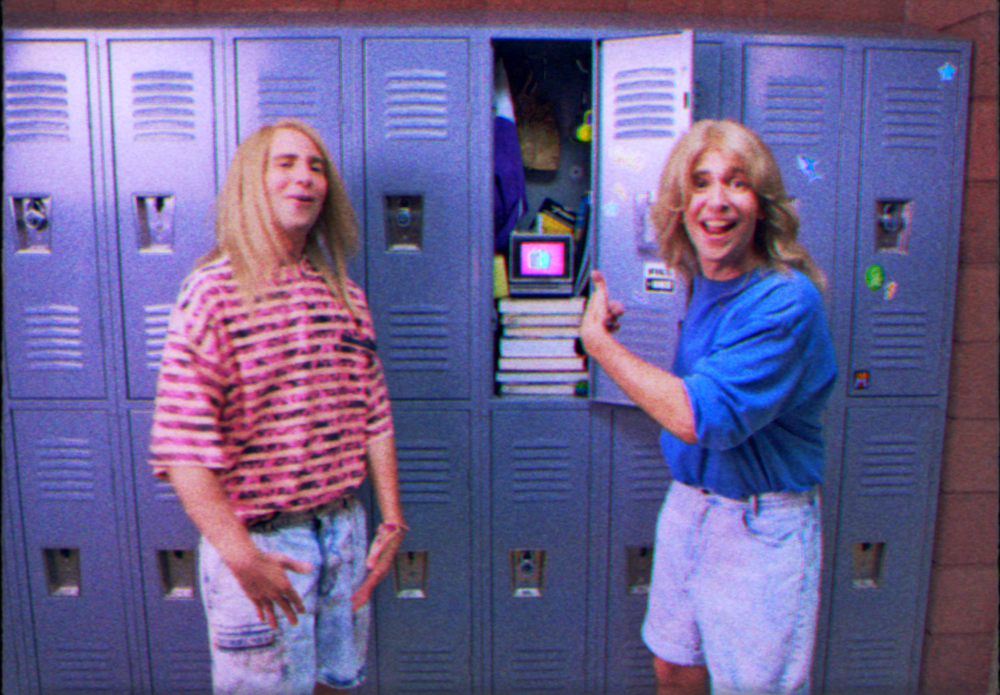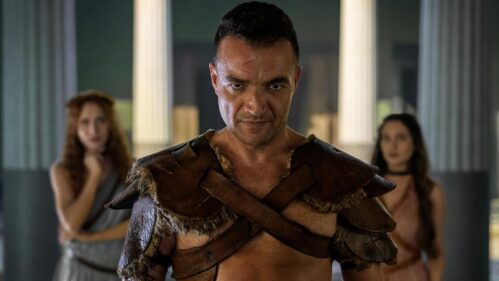“Saturday Morning All-Star Hits!” finally gives comedian Kyle Mooney the power he has long deserved, from back in his YouTube days, to his work on “Saturday Night Live,” to his underrated film “Brigsby Bear.” The fact that Mooney gets his own series is just the beginning of what makes this series so triumphant—it’s irresistibly funny and thoughtful, while being specifically from his interests and sensibilities. It’s the most Mooney we’ve been able to see on such a scale, and it all the more proves how his way of storytelling and character isn’t niche, but it is singular. You could fill a Criterion boxset out of the “Cut for Time” sketches he has from “Saturday Night Live,” but you can also be excited, as I clearly am, that someone has finally let Mooney build a world and fill it with whatever is in his brain and in his VHS collection.
Co-created with long-time collaborator and director Dave McCary and animator Ben Jones, “Saturday Morning All-Star Hits!” frames itself around the programming of a Saturday morning animation block. It’s hosted with zazzy-zazz by Skip (Mooney) and Treybor (Mooney), two dopey blonde brothers who try to make everything sound super exciting, as too does the aggressive camerawork and fast-cutting. They introduce shows that initially seem kid-friendly, like one about a dinosaur named Randy, or another about galactic space animals known as The Strongimals. And at first, it might seem like these shows are isolated, if not dry. But “SMASH” is a series that excels with arcs that play the long game, while challenging the very form at hand. Suddenly the cartoons change given the impacts of popularity, capitalism, and the latest in celebrity news. When Skip gets one scene-stealing, terribly stupid line about subs on “The Strongimals,” it changes everything for the brothers, the show, and all of the program.
Nostalgia is fraught territory—creators can easily lay back on being pleased with the references they’re making, and alienate viewers at the same time. But Mooney proves yet again to treat nostalgia more like a bountiful language, using pop culture from the ‘80s and ‘90s to then tell underlying stories—it’s not important that you know what has inspired a bizarre cartoon like “The Strongimals,” or a TV star like Skip. It’s more important that you get lost in the rush of this world, especially as the individual shows’ episodes start to look like they’re losing control of their references and character arcs, and the darker behind-the-scenes live-action narratives then play into the animation. But if you do recognize the aesthetics, “SMASH” apes them beautifully, like the in-your-face color filters and tilted camera angles that were all the rage in the ‘80s/‘90s. The series intricately recreates the overstimulation of Saturday morning cartoons, including the toe-tapping music, the spunky logos, and the junky toys that are advertised in the middle (like “Rude Cubes”). And the scripts have an extremely amusing interest in words, like with a growing arc built around the phrase “Shut up” that derails the entire series. “SMASH” loves to joke about what was considered cool at the time, and it never stops being funny.

The series is so full of Mooney that there are multiple versions of him, sometimes at the same time, acting opposite himself (“SMASH” also becomes a noteworthy entry in seamless doubles acting). But there’s a sneaky celebrity power here about who is doing the supporting voice-work, which becomes one of the many little details that you might miss and that the credits do not want you to notice. “SMASH” features the likes of Paul Rudd, Chris Redd, Emma Stone, Patti Harrison, Beck Bennett, and Fred Armisen, many of them unrecognizable. And then in live-action sequences, “SMASH” gives playful, passing roles to Geraldine Viswanathan and Dylan Sprouse. Their participation is practically baked into the joke, but the way that everyone plays with their presence from even inside a vocal booth adds to the endorsement. And not for nothing, the series does an excellent, non-flashy job in pushing back against the immense whiteness of the media from that era, showing that nostalgia for previous eras does not have to repeat their deficit of perspectives.
“SMASH” is so Mooney-grade that you can practically guess how many things will play out—that a comic arc will start with something quirky and cheesy but told with hardcore sincerity, only to later crash into pathos, revealing the gaping hole at the center of its characters. But this effect never gets old in “SMASH,” particularly with how it puts such a poppy, lively cover over such hilariously dark themes (like jealous brothers, or creators like unloved comedian Bruce Chandling who hilariously tries to sugarcoat his sadness in the amazing cartoon “Lil’ Bruce”), with animated segments that are entertaining and lovingly detailed on their own. The cheesiness of the era amps everything up, all so that the awkward, devastating moments of silence can be extremely funny. Time and time again, “SMASH” made me laugh out loud—hard—and amazed that this show actually exists.
All of season one screened for review.












